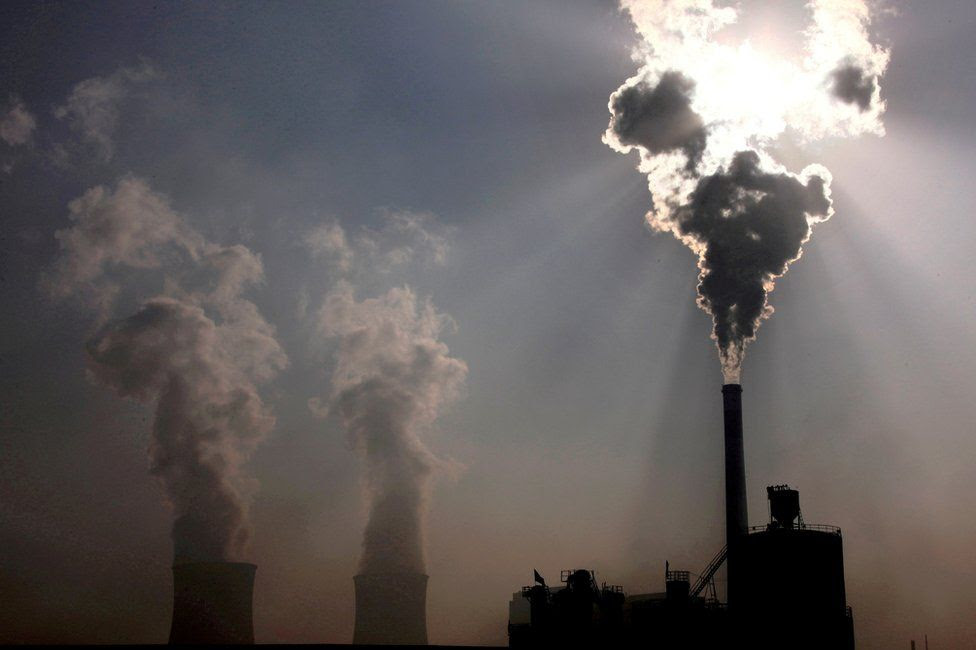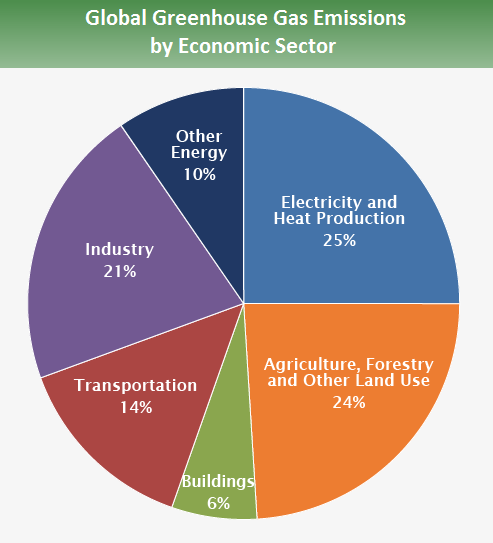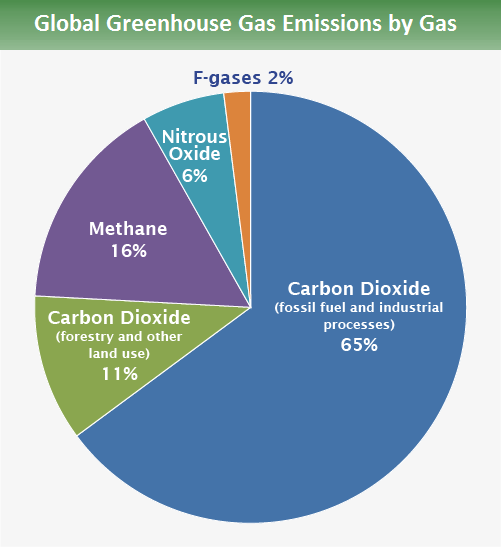 A coal-fired power plant in China’s Inner Mongolia
A coal-fired power plant in China’s Inner Mongolia
Carbon emissions are rebounding strongly and are rising across the world’s 20 richest nations, according to a new study.
சி. ஜெயபாரதன், B.E.(Hons). P.Eng. [Nuclear],Canada
 © Provided by Narcity
© Provided by NarcityOntario’s Weather Is Turning Chaotic RN & Cities Are Being Warned Of Tornado Risks
Environment Canada has just issued severe thunderstorm watches across parts of the province and Ontario’s weather is about to turn chaotic.
உலகிலே மிகப்பெரும் சூழ்வெளி விஷ வாயு வெளிவீச்சு வல்லமை நாடு
அமெரிக்கா, அமெரிக்கா, அமெரிக்கா அசுர வல்லமை நாடு. கியோடோ, கோபன்ஹேகன், பாரிஸ் போன்ற உலகச் சூழ்வெளி விஷ வாயுக்கள் குறைப்பு ஒப்பந்தங்களில் உடன்படாத ஒரு பெரும் வல்லரசு நாடு அமெரிக்காதான். 2021 ஆண்டு கரிவாயு வீச்சு அளவை ஒப்பிடும்போது உலகச் செல்வீக நாடுகளில் 20 இல் கரிவாயுக் கொள்ளளவு விரைவாக மிகுந்துள்ளது என்று “காலநிலைத் தெளிவு அறிக்கை” தயாரிப்பாளர் [Climate Transparency Report] கூறுகிறார். இன்னும் இரண்டு வாரத்தில் கிளாஸ்கோ, ஸ்காட்லாந்தில் COP26 காலநிலைக் கூட்டிணைப்பு உலகப் பேரவை கூடிப் பேசப் போகிறது. .
மேலும் தெளிவு அறிக்கை கூறுவது.
- G20 குழுமை நாடுகளால் இந்த 2021 ஆண்டில் கரிவாயு அளவு 4% ஏறுகிறது.;
- 2020 கொரோனா பேரிடரால் G20 குழுமை நாடுகளில் கரிவாயு சேர்க்கை 6% குறைந்தது.
- சைனா, இந்தியா, அர்ஜென்டைனா நாடுகளில் கரிவாயு வீச்சு 2019 ஆண்டை விட மிகையானது.
- இயற்கை வாயு, பெட்ரோலியம் எரிசக்தி தொடர்ப் பயன்பாடு சூழ்வெளி உஷ்ணக் கட்டுப்பாடை தடுத்தது.
- கடல்நீர் உஷ்ணம் தற்போது 1.1C ஆக உள்ளது. அது 1.5.C ஆக ஏறி விடாமல் தடுப்பு முறைகள் கையாள்வது.
- . G20 குழு நாடுகள்75% சுழ்வெளி விஷ வாயுக்கள் எழுச்சிக்குப் பங்கு ஏற்புக்கு துணை செய்கின்றன.
- G20 குழு நாடுகளில் நிலக்கரிப் பயன்பாடுகளால் கரிவாயு எழுச்சி இந்த ஆண்டு 5%
- சைனா நிலக்கரி எரிசக்தி பயன்படுத்தி கரிவாயு எழுச்சி 60% உலகில் இவ்வாண்டு மிகையாகி விட்டது.
- அமெரிக்கா, இந்தியாவில் இவ்வாண்டு நிலக்கரிப் பயன்பாடு அதிகரித்துள்ளது.
- இவ்வாண்டில் [2021] நிலக்கரி விலை 200% மிகையாகி மின்வெட்டு நிலை ஏற்பட்டுள்ளது.
- G20 குழு நாடுகளில் எரிவாயு பயன்பாடு 12% [2015-2020] ஆண்டுகளில்.
==============================
That’s true, despite recent gains in energy efficiency and cuts in emissions. These relatively small steps now cannot offset more than a century of reckless emissions that have built up in the atmosphere. Much more drastic steps are now needed to slow climate change. And as the top cumulative emitter, the US bears a greater imperative for curbing its carbon dioxide output and a greater moral responsibility for the impacts of global warming.
Yet the US is now the only country aiming to withdraw from the Paris climate agreement. China now emits more than the US, and India’s emissions are rapidly rising. But these countries have a much smaller share of cumulative global emissions. Their populations are also much bigger than the US and other wealthier countries, so the amount that India and China emit per person is vastly smaller than the United States or the United Kingdom.
/cdn.vox-cdn.com/uploads/chorus_asset/file/16185122/gw_graphic_pie_chart_co2_emissions_by_country_2015.png)


- Carbon dioxide (CO2): Fossil fuel use is the primary source of CO2. CO2 can also be emitted from direct human-induced impacts on forestry and other land use, such as through deforestation, land clearing for agriculture, and degradation of soils. Likewise, land can also remove CO2 from the atmosphere through reforestation, improvement of soils, and other activities.
- Methane (CH4): Agricultural activities, waste management, energy use, and biomass burning all contribute to CH4 emissions.
- Nitrous oxide (N2O): Agricultural activities, such as fertilizer use, are the primary source of N2O emissions. Fossil fuel combustion also generates N2O.
- Fluorinated gases (F-gases): Industrial processes, refrigeration, and the use of a variety of consumer products contribute to emissions of F-gases, which include hydrofluorocarbons (HFCs), perfluorocarbons (PFCs), and sulfur hexafluoride (SF6).
Black carbon is a solid particle or aerosol, not a gas, but it also contributes to warming of the atmosphere. Learn more about black carbon and climate change on our Causes of Climate Change page.
 Flooding has taken place in many parts of USA, UK, Germany & China across 2021
Flooding has taken place in many parts of USA, UK, Germany & China across 2021
Report highlights
- Coal consumption is projected to rise by almost 5% in 2021, with this growth driven by China (accounting for 61% of the growth), the USA (18%) and India (17%)
- The US (4.9 tCO2/capita) and Australia (4.1 tCO2/capita) have the highest building emissions per capita in the G20 (average is 1.4 tCO2/capita), reflecting the high share of fossil fuels, especially natural gas and oil, used for heat generation
- Between 1999 and 2018 there have been nearly 500,000 fatalities and close to $3.5 trillion of economic costs due to climate impacts worldwide, with China, India, Japan, Germany, and the US being hit particularly hard in 2018
- Across the G20, the current average market share of electric vehicles (EVs) in new car sales remains low at 3.2% (excluding the EU), with Germany, France, and the UK having the highest shares of EVs

There are expectations that both India and China will submit new national plans before the meeting in Glasgow, which could give a significant boost to attempts to keep the 1.5C target in view.
The G20 group will meet in Rome in the days leading up to COP26 and the UK minister who will lead the talks has in recent days urged the leaders of these countries to now step up.
“It is leaders who made a promise to the world in Paris six years ago, and it is leaders that must honour it,” said Alok Sharma.
“Responsibility rests with each and every country, and we must all play our part. Because on climate, the world will succeed, or fail, as one.”
October 16th, 2021 [நீரகவாயு பயன்பாடு]
Ignore the hydrogen market at your own peril.
Haven’t heard of the hydrogen economy and all the new technologies being developed around it?
That’s okay, you’re not alone.
And it isn’t too late. In fact, now is the perfect time to gain exposure.
But first, what exactly is “the hydrogen economy”?
Simply put, the hydrogen economy is a collection of markets and technologies that surround the fast-growing hydrogen market.
Between liquid hydrogen and hydrogen fuel cell airplanes and cars, hydrogen is quickly becoming the hottest source of clean energy investing.
This is the optimal time for investors to make the most of their money.
Because the various technologies are real and decisions are still being made, investors in the know have a chance to make gains of a lifetime.
While lithium-ion batteries have been leading the way in clean energy technology advancements, hydrogen is about to take the spotlight.
We’ve been following the developments in hydrogen and the various technologies surrounding it for years, all the while taking notes and researching.
Our latest (free) report contains that research and some investment ideas for those looking to take advantage of this quickly growing economy.
It’s called “The Hydrogen Economy 2.0,” and in it, we detail:
- Various industries impacted by hydrogen tech
- What is causing recent breakthroughs for the technology
- Why hydrogen technology has infinite room to grow
After reading our free report, you’ll know why we’re excited about the huge potential of hydrogen technology not only for investors, but for the world as a whole.
This is not an opportunity you want to delay taking action on.
==============================
தகவல்
2.https://secure.
4. https://ca.movies.yahoo.
S. Jayabarathan [October 16, 2021] [R-0]
- சொல்வனம் இணையப் பத்திரிகையின் 256 ஆம் இதழ்
- பெண்மை-பெண்ணியம்-பெண் ஆற்றல்
- பொறுப்பு
- சன்னல்
- கவிதையும் ரசனையும் – 22
- விடாது கருப்பு…!
- தீக்காய்வார் போல …
- கவிஞர் வைதீஸ்வரனின் புதிய நூல் குறித்து……
- எஸ். சாமிநாதன் விருது
- பூகம்பத்தால் பூகோளச் சுற்று அச்சின் சாய்வு மாறி பூமியின் சூடேற்ற நிலை பேரளவு பாதிப்பாகிறது
- 2021 ஆண்டில் 20 செல்வீக நாடுகளில் கரிவாயு வீச்சு விரைவில் மிகையாகிறது .
- காணாத கனவுகள்
- குருட்ஷேத்திரம் 23 (சக்கரவியூகத்தில் அகப்பட்டு மாண்ட வீரஅபிமன்யூ)
- குருட்ஷேத்திரம் 24 (யயாதி மனித நிலையிலிருந்து வீழ்ச்சிக் கண்டவன்!)
- எஸ். ஜெயஸ்ரீ மற்றும் கே. பி. நாகராஜன் தொகுப்பாக – ’மிகையின் தூரிகை’ ஒரு பார்வை